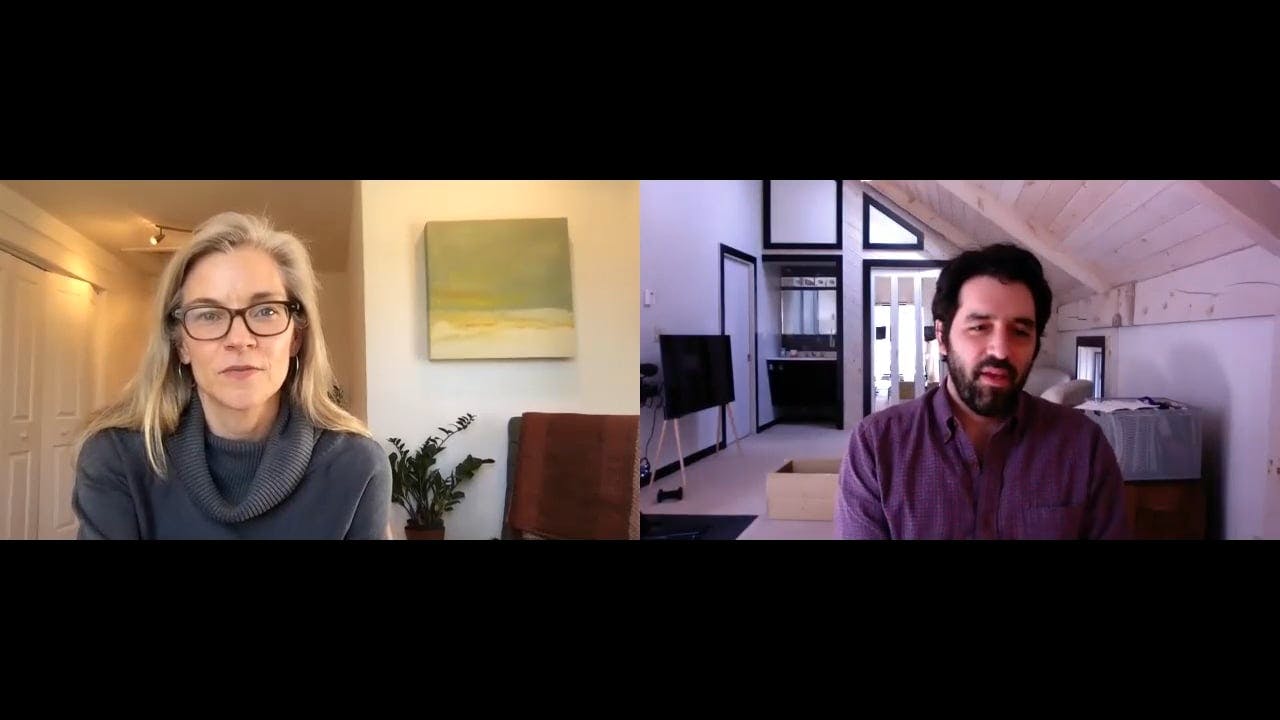
A new book explores the undocumented experience in all its complexity
56 min watch
Two months into a term that has already included accelerating a massive vaccination effort and passing trillions of dollars of economic relief, the Biden administration must now confront the complex situation at the U.S.-Mexico border.
In March, border crossings continued to increase, with more than 170,000 encounters reported by U.S. Customs and Border Protection officials—though nearly 30% of these individuals had previously tried to cross the border. A record number of these encounters were unaccompanied children crossing the border without a parent or a legal guardian. Others were migrant families, about a third of whom were expelled back across the border to Mexico, along with the vast majority of single adults. Providing fair and humane treatment for these individuals remains a challenge—and top priority—for the U.S. immigration system.
And yet, as the media breathlessly report the number of border crossings during the Biden presidency, close watchers of immigration in the Americas know that the stats do little to explain the issue, which is built on a web of complicated historical relationships between the U.S. and the home countries of many of these migrants, particularly in the “Northern Triangle” of Guatemala, Honduras, and El Salvador.
Among the keenest observers of the “near abroad” is Jonathan Blitzer, an award-winning journalist with The New Yorker and current Emerson Fellow at New America. The culmination of a half-decade of reporting, his forthcoming book, tentatively titled The Golden Door, contextualizes this current moment and examines its root causes—and does so in a way that centers on immigrants. “For me, the starting point always—from the very beginning of my interest in some of these issues—has been people themselves, specific people,” Blitzer says.
He recently joined Anya McMurray, senior director of immigration strategy and policy at Emerson Collective, to discuss the nuanced picture of immigration captured in his book and why the media so often oversimplifies it.

FELLOWS FRIDAY SERIES: Journalist Jonathan Blitzer discusses the nuance that gets lost in America’s conversation about immigration—and how the media must change.
To tune in to this story at the U.S. border is really like picking up a book and reading the last chapter. The Golden Door is an attempt to tell a full narrative history of the relationship between the U.S. and Central America from the 1980s to the present. My hope with this book is to try to lay out the story of how closely entwined the U.S. is with the Northern Triangle—and to have human beings be at the center of it. There are people whose lives actually demonstrate and plot out the broader history and policy questions, and if you start to think about these issues in those human terms, it unlocks the broader story. It also gives you a window into how policy moves made in Washington have vast human implications. If you start to think about approaching these subjects in that way, resisting the impulse to start from the top down, you learn more.
The journalistic impulse I have is to say: OK, we have a big phenomenon like climate change. It stands to reason that that would force people to emigrate. What does that look like on the ground? How does a little community start to reckon with the fact that, for the last seven years, crops that they’ve grown for their whole lives will not take in the soil for reasons related to humidity or pests? What happens when, within a single family, one person decides she will try to adapt and find a way to make her life at home sustainable, while others drop everything and leave for the U.S.? Getting that granular is, I think, going to be the most helpful and illustrative.
Then you get to the related policy question. The asylum system ought to be updated to face the reality that we know exists in the region. The definition of asylum so often involves people fleeing a particular form of persecution, and we haven’t even made good on that promise in our asylum laws. But what do you do when there are people who aren’t fleeing government persecution per se, but who are fleeing a tangible phenomenon that we are also contributing to? My only hope is that through truly diligent, responsible storytelling, you’re at least building up people’s capacity to think and empathize with this reality.
If you were to listen to the policymakers on the whole, the sense you would get is, “This is a thing that befalls us. We’re a rich, powerful country, so inevitably we’re dealing with people who are desperate to get here.” Of course, that leaves out everything. But, specifically, U.S. immigration policy actually creates—and this is something that I’ve become really fascinated by—a new, global demographic. You have people who are Salvadoran, who then come to the U.S. and live in the U.S. for a while. They’re not, in a legal sense, American, but nor are they Salvadoran. They get subsumed by a different identity. Then if they were to leave to go home, whether by choice or because of deportation, they are this other thing—they’re an amalgam of the places that they’ve been. How do we understand what it means to be a global citizen in that way?
In Washington, policymakers either don’t care or don’t want to have to face up to what this means, and the consequences snowball over decades. The politics around this issue are so stultifying. There’s so much lying and cynicism and misinformation on the right. But I think the understandable impulse among people who are more progressive-minded to try to push back against that misinformation by valorizing or romanticizing some of the people who are making these trips to the U.S. also seems like a storytelling trap. Because that’s not the people I meet, who are the most normal, interesting human beings, with contradictions and blind spots and incredible resiliency and senses of humor. If your focus is on people, then I think you’re protecting yourself against falling into these kinds of binaries that are otherwise dictated by very artificial versions of the immigration debate.
Without wanting to seem like I’m in the tank for one administration or another, or one party over another, I think at this point we have to call it like it is. There is one party that is sowing misinformation around this issue and it is turning this issue into its main cudgel with which to try to beat Democratic politicians. So the first and most obvious thing is for the media not to take the bait every time. Almost all of the terms that are dominating the conversation right now about the border with the Biden administration are terms that originated with Republican congressmen. Journalists have a responsibility to do more than just regurgitate the “on the one hand, Democrats say, on the other hand, Republicans counter …”
Also, you have to take a lot of spin off the ball as a reporter, and I don’t think people do that enough. There are sources inside the government who I think are not necessarily acting in bad faith, but who deliver information with a slant. It applies to every little nook and cranny of this issue. At The New Yorker, I have the luxury of space, but even I can’t get into all of it every time. I can’t always give you the deep cut of what I’m working on. So I ask myself, “What are two or three of the main misconceptions I’m seeing?” and then try to work against those with my reporting.
JONATHAN BLITZERThrough truly diligent, responsible storytelling, you're at least building up people’s capacity to think and empathize with this reality.
The thing that I think is going to be a problem unique to the Biden era is that the political crisis of immigration is such a big part of the immigration issue. As much as I would like to pull back from, say, the bumbling craziness of political press conferences, the more I’ve come to think that actually part of the policy conundrum is the political problem associated with the policy conundrum. I’m stumped by it. It’s not clear to me yet how you handle it. There needs to be some way to expand immigration coverage to include political coverage—but from the standpoint of immigration expertise. That’s going to be a really important thing over these next few years.